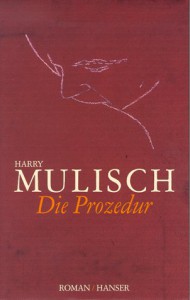What I am reading
this is the highly subjective way I read and interpret literature
(I mostly read classic belles-lettres, but you’ll find some examples of trashy readings here and there as well)
Life and Death

Harry Mulisch‘s novel The Procedure is definitely demanding and I am sure it has scared away more than a handful of readers.
The best adjective to describe this text is probably heavy. Everything in here is heavy, the symbolism, the references and the topic. To be fair, this is to be expected from a book dealing with the dialectics of life and death, yet it was surprisingly touching as well.
Structure-wise the novel consists of three very different individually stand-alone, yet still intertwined parts. The first one I want to call an introduction to the literary topic of artificial creation (Mulisch being Mulisch, he naturally puts the emphasis on the story of Rabbi Löw’s golem, but we get a lot of Pygmalion and even a bit of Frankenstein as well), the second part is written in epistolary form (the protagonist Victor (of course, he is called Victor!) Werker writes to his stillborn daughter Aurora), dealing with Victor’s family history as well as his scientific endeavours and the last part is a classic third person narrative of Victor and his personal struggles in the present.
Mulisch creates some of the best characters I have found in literature recently – three dimensional, not stereotypical and first and foremost: believable! When I read Hustvedt’s What I loved (which I absolutely did not love btw), I remember being almost appalled by the elitist caricatures of characters who read Wittgenstein’s Tractatus just for fun before going to bed – because that’s obviously what academics do in her opinion. Whereas Mulisch’s characters are moving in the same academic (almost Nobel Prize winning) spheres, he is able to portrait them as humans who can talk about other things besides their area of research and do not know the entire oeuvre of Shakespeare and Cervantes by heart.
Anyway. There is a strong emphasis on women being and becoming mothers, a lot of writing about pregnancy and the actual act of giving birth, almost to the point where it feels like Mulisch is telling Freud that he can take his Penisneid and go to hell with it or stick where the sun don’t shine.
As you can see, The Procedure is going all over the place and is trying to be a lot at the same time. Strangely enough, it works though. In the end, the novel is above all emotionally demanding, although, after having finished it, I am somewhat left emotionally unsatisfied.







 1
1
